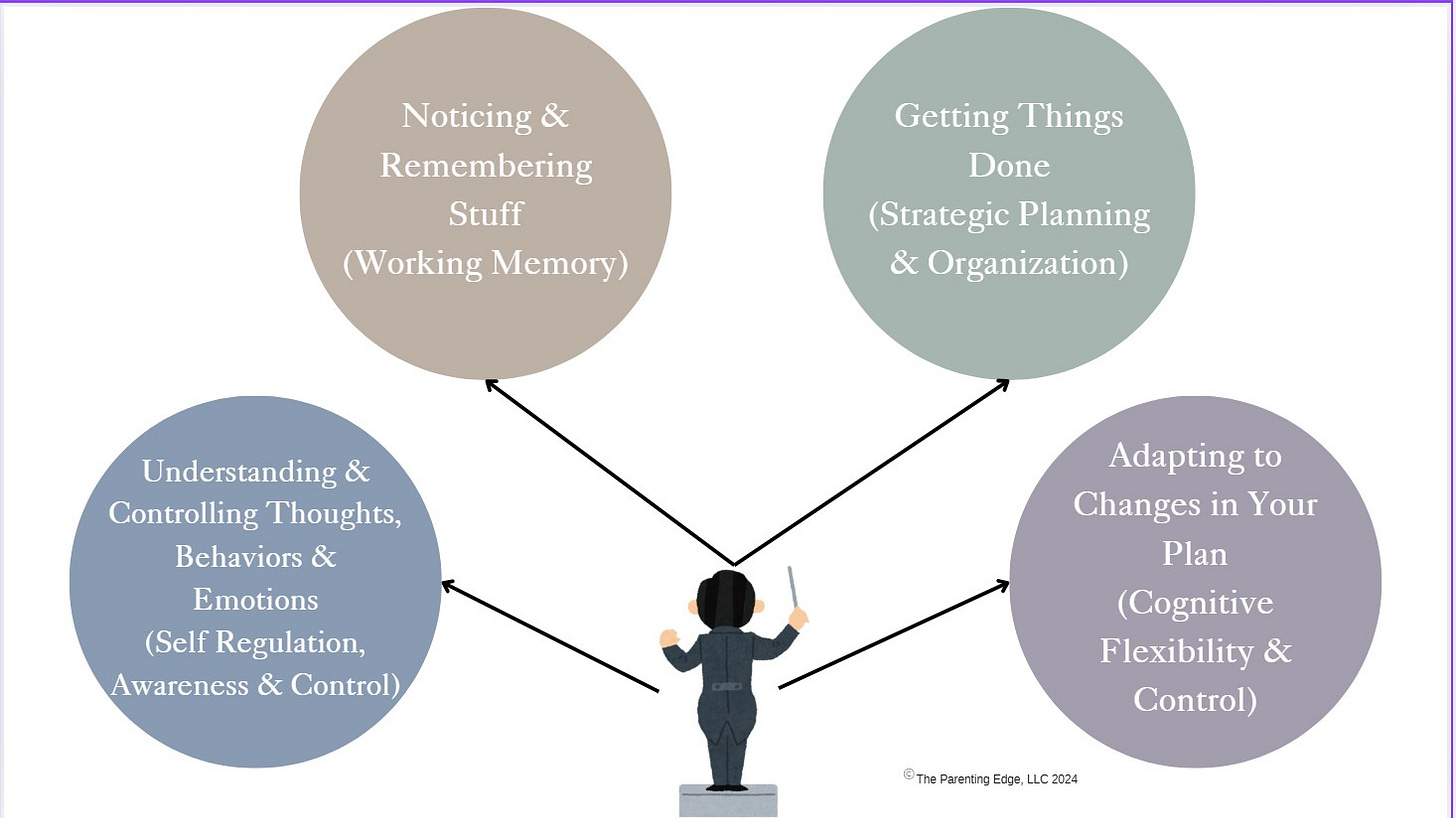What is this Executive Functioning Stuff I Keep Hearing About?
the "Executive Functioning -101" post that answers many of the questions I get about this topic

I get questions like this all the time. This may not be the most exciting and interesting post, but I figured this would be the most efficient way to answer some common questions. I am on a mission to raise awareness about this topic. I want a world where our "differently thinking" kids can thrive.
What is Executive Function?
Executive function is a group of skills that we use to:
Set goals for ourselves
Create the steps to achieve the goal
Sustain the effort to complete the steps and reach the end result
These goals can be simple, like taking out the trash or finishing a math assignment. Or, they can be complex, like finding a job or doing a big research paper.
We use these skills everyday to:
Make decisions
Solve problems
Remember instructions
Plan ahead for something in the future
Track our progress
Revise plans if necessary
Get along with others
Control our emotions
It’s like having a conductor in our brain who is in charge of managing these daily life activities.
Why are these skills so important?
We need them to successfully manage daily life:
Holding a job
Managing a crisis
Problem solving
Sustaining relationships/social skills
Strong EF skills are the number one predictor of academic success - more than a high IQ. We need them for:
Studying
Reading comprehension
Writing
Math
Class discussions
Group projects
Weaknesses in these skills can cause challenging behaviors. These are often seen, and misinterpreted, as willful defiance and avoidance of tasks. Children are labeled as “behavior problems” when the root cause of the behavior often stems from the delayed development of these skills.
The Center on the Developing Child at Harvard University says that strong executive function skills in children are not only linked to success in school, but also to social, emotional, and moral development.1
How do these skills develop?
The Center on the Developing Child also says we aren't born with these skills. But we have the potential to develop them.2
Parents and educators work to develop these skills in children from infancy through adolescence.
Parents and caregivers are the main support for building these skills. We hope kids are learning and building these skills at school. But we can't assume this is happening in the classroom.
It would be great to dedicate time in the school day to building executive function skills. But the current education system is not designed for this. I applaud the teachers trying to add these skills to their lessons. But there is not enough time or space in the required curriculum to focus on them.
Can individuals build and strengthen these skills if they are delayed or weak?
Yes. According to Adele Diamond, a leading expert in the field of executive functions, executive functions are trainable and can be improved at any age.3
I’ve spent much of the last 19 years learning to support my brilliant, neurodivergent child.
Here is an excerpt from a course I created for PARENTS and caregivers. It is our responsibility as parents to teach our kids these skills. We must also know how to spot when they are weak or underdeveloped.
If you suspect your child is struggling with executive functioning skills, please consult their doctor and the right professionals. This publication is informational and is not intended to provide medical advice.
National Scientific Council on the Developing Child, National Forum on Early Childhood Policy and Programs, (2011). Building the Brain’s “Air Traffic Control System: How Early Experiences Shape the Development of Executive Function. Working Paper 11. Center on the Developing Child, Harvard University. www.DevelopingChild.Harvard.EDU, (pp. 5)
Ibid 1
Diamond, A. (2013). Annual Review of Psychology, Volume 64. Executive Functions. www.psych.annualreviews.org. (pp.156)



